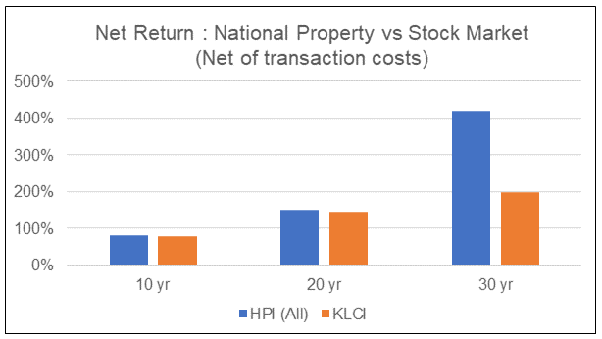
Although it is tempting to get a free course online in forex trading, if your knowledge of the forex market is limited, you shouldn't rely on them alone. Although these free courses can provide some background information they won't be able to prepare you for the real deal. Do some research about the 2008, 1999, and 1929 market crashes to make sure you get the most from your trading education. These events could help you understand how investing in currency markets can be dangerous and whether it's worth your money.
Learn how forex trading works
A lot of people search for free forex courses to learn how to trade foreign currencies. People looking to make extra income from home are likely to choose forex. Low capital requirements, ease-of-entry, and the possibility to earn an income are all attractive features. But what exactly does Forex mean? These are some essential facts that you need to be aware of. Read on to discover what forex is all about.

It is essential to remain disciplined while taking a course. Trading is a career and the skills you acquire along the way will make or break you. Choose a learning style that suits you best and stay with it. Ask for the advice of other traders. This will allow you to gain valuable information from others. It is not an easy process to learn how to trade, so you should be ready for a steep learning curve.
What are the traits of forex traders who succeed?
While trading forex may seem like an exciting endeavor, you must have the necessary time and discipline to be a successful trader. Good traders follow a specific strategy to increase their chances of success. They might focus on currencies that are predictable and limit their positions. Forex traders who succeed focus on one thing and are able to master it before they move on to the next. This allows them to be calm and objective in all situations.
The ability to adapt to changing circumstances is one of the most important characteristics of a Forex trader. They must have the ability to think critically and make trades in even the most challenging times. This requires years of experience, and it is impossible to learn these skills overnight. Experience is the best teacher. Experiential learning is the best way to learn. But how do I learn this skill? Keep reading to learn how!
Online forex trading courses versus one-on-one mentoring
One-on-one mentoring vs an online Forex trading course is a great way to learn about the market. But which one is better? Both methods have their advantages, but it all depends on what your goals are. Mentors can help reduce your learning curve. They can also point out areas where you may be making mistakes. You may also find that mentors can help you network with other traders.

An online course in forex trading is meant to provide forex traders with the information they need to avoid common mistakes, forecast currency trends, and make better decisions. It also introduces you to different trading platforms and their features, as well as transaction costs and spreads. It can be hard to understand all of these aspects on your own so it is best to take an online course. You will have access to the best courses and an interactive environment.
FAQ
What's the role of the Securities and Exchange Commission (SEC)?
SEC regulates brokerage-dealers, securities exchanges, investment firms, and any other entities involved with the distribution of securities. It enforces federal securities laws.
How can I find a great investment company?
A good investment manager will offer competitive fees, top-quality management and a diverse portfolio. The type of security in your account will determine the fees. Some companies charge nothing for holding cash while others charge an annual flat fee, regardless of the amount you deposit. Others charge a percentage based on your total assets.
You should also find out what kind of performance history they have. You might not choose a company with a poor track-record. You want to avoid companies with low net asset value (NAV) and those with very volatile NAVs.
You should also check their investment philosophy. To achieve higher returns, an investment firm should be willing and able to take risks. If they're unwilling to take these risks, they might not be capable of meeting your expectations.
What are the benefits of investing in a mutual fund?
-
Low cost - buying shares directly from a company is expensive. Purchase of shares through a mutual funds is more affordable.
-
Diversification – Most mutual funds are made up of a number of securities. The value of one security type will drop, while the value of others will rise.
-
Professional management – professional managers ensure that the fund only purchases securities that are suitable for its goals.
-
Liquidity- Mutual funds give you instant access to cash. You can withdraw the money whenever and wherever you want.
-
Tax efficiency - mutual funds are tax efficient. As a result, you don't have to worry about capital gains or losses until you sell your shares.
-
Purchase and sale of shares come with no transaction charges or commissions.
-
Mutual funds are easy to use. All you need is money and a bank card.
-
Flexibility - You can modify your holdings as many times as you wish without paying additional fees.
-
Access to information – You can access the fund's activities and monitor its performance.
-
Investment advice - ask questions and get the answers you need from the fund manager.
-
Security - know what kind of security your holdings are.
-
You can take control of the fund's investment decisions.
-
Portfolio tracking - you can track the performance of your portfolio over time.
-
Easy withdrawal - it is easy to withdraw funds.
There are disadvantages to investing through mutual funds
-
Limited investment options - Not all possible investment opportunities are available in a mutual fund.
-
High expense ratio: Brokerage fees, administrative fees, as well as operating expenses, are all expenses that come with owning a part of a mutual funds. These expenses will eat into your returns.
-
Lack of liquidity - many mutual funds do not accept deposits. They must be bought using cash. This limits your investment options.
-
Poor customer service: There is no single point of contact for mutual fund customers who have problems. Instead, you must deal with the fund's salespeople, brokers, and administrators.
-
Ridiculous - If the fund is insolvent, you may lose everything.
What's the difference between a broker or a financial advisor?
Brokers specialize in helping people and businesses sell and buy stocks and other securities. They take care all of the paperwork.
Financial advisors can help you make informed decisions about your personal finances. Financial advisors use their knowledge to help clients plan and prepare for financial emergencies and reach their financial goals.
Financial advisors may be employed by banks, insurance companies, or other institutions. They can also be independent, working as fee-only professionals.
If you want to start a career in the financial services industry, you should consider taking classes in finance, accounting, and marketing. It is also important to understand the various types of investments that are available.
What are the advantages to owning stocks?
Stocks can be more volatile than bonds. Stocks will lose a lot of value if a company goes bankrupt.
If a company grows, the share price will go up.
To raise capital, companies often issue new shares. This allows investors to purchase additional shares in the company.
Companies use debt finance to borrow money. This allows them to access cheap credit which allows them to grow quicker.
People will purchase a product that is good if it's a quality product. The stock will become more expensive as there is more demand.
The stock price should increase as long the company produces the products people want.
What is the difference in marketable and non-marketable securities
The main differences are that non-marketable securities have less liquidity, lower trading volumes, and higher transaction costs. Marketable securities, on the other hand, are traded on exchanges and therefore have greater liquidity and trading volume. They also offer better price discovery mechanisms as they trade at all times. However, there are many exceptions to this rule. There are exceptions to this rule, such as mutual funds that are only available for institutional investors and do not trade on public exchanges.
Marketable securities are less risky than those that are not marketable. They typically have lower yields than marketable securities and require higher initial capital deposit. Marketable securities can be more secure and simpler to deal with than those that are not marketable.
A large corporation bond has a greater chance of being paid back than a smaller bond. Because the former has a stronger balance sheet than the latter, the chances of the latter being repaid are higher.
Because they can make higher portfolio returns, investment companies prefer to hold marketable securities.
Are bonds tradeable
Yes they are. As shares, bonds can also be traded on exchanges. They have been traded on exchanges for many years.
You cannot purchase a bond directly through an issuer. You must go through a broker who buys them on your behalf.
Because there are fewer intermediaries involved, it makes buying bonds much simpler. This means you need to find someone willing and able to buy your bonds.
There are different types of bonds available. Some bonds pay interest at regular intervals and others do not.
Some pay quarterly, while others pay interest each year. These differences make it easy for bonds to be compared.
Bonds are a great way to invest money. If you put PS10,000 into a savings account, you'd earn 0.75% per year. If you invested this same amount in a 10-year government bond, you would receive 12.5% interest per year.
You could get a higher return if you invested all these investments in a portfolio.
Statistics
- Our focus on Main Street investors reflects the fact that American households own $38 trillion worth of equities, more than 59 percent of the U.S. equity market either directly or indirectly through mutual funds, retirement accounts, and other investments. (sec.gov)
- Even if you find talent for trading stocks, allocating more than 10% of your portfolio to an individual stock can expose your savings to too much volatility. (nerdwallet.com)
- Ratchet down that 10% if you don't yet have a healthy emergency fund and 10% to 15% of your income funneled into a retirement savings account. (nerdwallet.com)
- The S&P 500 has grown about 10.5% per year since its establishment in the 1920s. (investopedia.com)
External Links
How To
How can I invest into bonds?
You need to buy an investment fund called a bond. Although the interest rates are very low, they will pay you back in regular installments. These interest rates can be repaid at regular intervals, which means you will make more money.
There are many different ways to invest your bonds.
-
Directly buying individual bonds
-
Buy shares of a bond funds
-
Investing through an investment bank or broker
-
Investing through financial institutions
-
Investing in a pension.
-
Invest directly through a stockbroker.
-
Investing in a mutual-fund.
-
Investing with a unit trust
-
Investing in a policy of life insurance
-
Investing via a private equity fund
-
Investing via an index-linked fund
-
Investing in a hedge-fund.